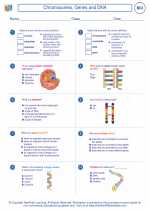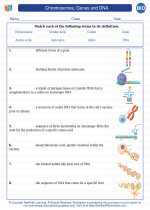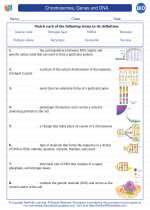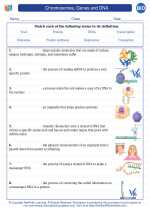Organelles
Organelles are specialized structures within a cell that perform specific functions necessary for the cell's survival. These structures are found in the cytoplasm of eukaryotic cells and are surrounded by a membrane. Each organelle has a specific role in maintaining the cell's homeostasis and carrying out cellular processes.
Nucleus
The nucleus is often referred to as the control center of the cell. It contains the cell's genetic material, which is organized into structures called chromosomes. The nucleus is responsible for regulating gene expression and coordinating cellular activities.
Endoplasmic Reticulum
The endoplasmic reticulum (ER) is a network of membranes that is involved in protein synthesis and lipid metabolism. There are two types of ER: rough ER, which is studded with ribosomes and involved in protein synthesis, and smooth ER, which is involved in lipid synthesis and detoxification.
Golgi Apparatus
The Golgi apparatus is responsible for processing, packaging, and sorting proteins and lipids synthesized in the ER. It modifies these molecules and prepares them for transport to their final destinations within the cell or for secretion outside the cell.
Mitochondria
Mitochondria are the powerhouses of the cell, responsible for generating energy in the form of ATP through the process of cellular respiration. These organelles have their own DNA and are believed to have originated from ancient symbiotic bacteria.
Chloroplasts
Chloroplasts are found in plant cells and are responsible for carrying out photosynthesis, the process by which plants convert light energy into chemical energy in the form of glucose. Like mitochondria, chloroplasts also have their own DNA and are thought to have originated from ancient photosynthetic bacteria.
Lysosomes
Lysosomes are membrane-bound organelles that contain digestive enzymes. They are responsible for breaking down and recycling cellular waste, old organelles, and foreign materials that enter the cell through the process of phagocytosis.
Study Guide
- What is the function of the nucleus?
- Describe the differences between rough ER and smooth ER.
- What is the role of the Golgi apparatus in the cell?
- Explain the significance of mitochondria in cellular function.
- What is the primary function of chloroplasts in plant cells?
- What are lysosomes and what is their role in the cell?
◂Biology Worksheets and Study Guides High School. Chromosomes, Genes and DNA

 Worksheet/Answer key
Worksheet/Answer key
 Worksheet/Answer key
Worksheet/Answer key
 Vocabulary/Answer key
Vocabulary/Answer key
 Vocabulary/Answer key
Vocabulary/Answer key
 Vocabulary/Answer key
Vocabulary/Answer key
